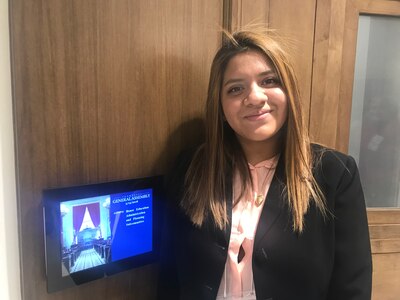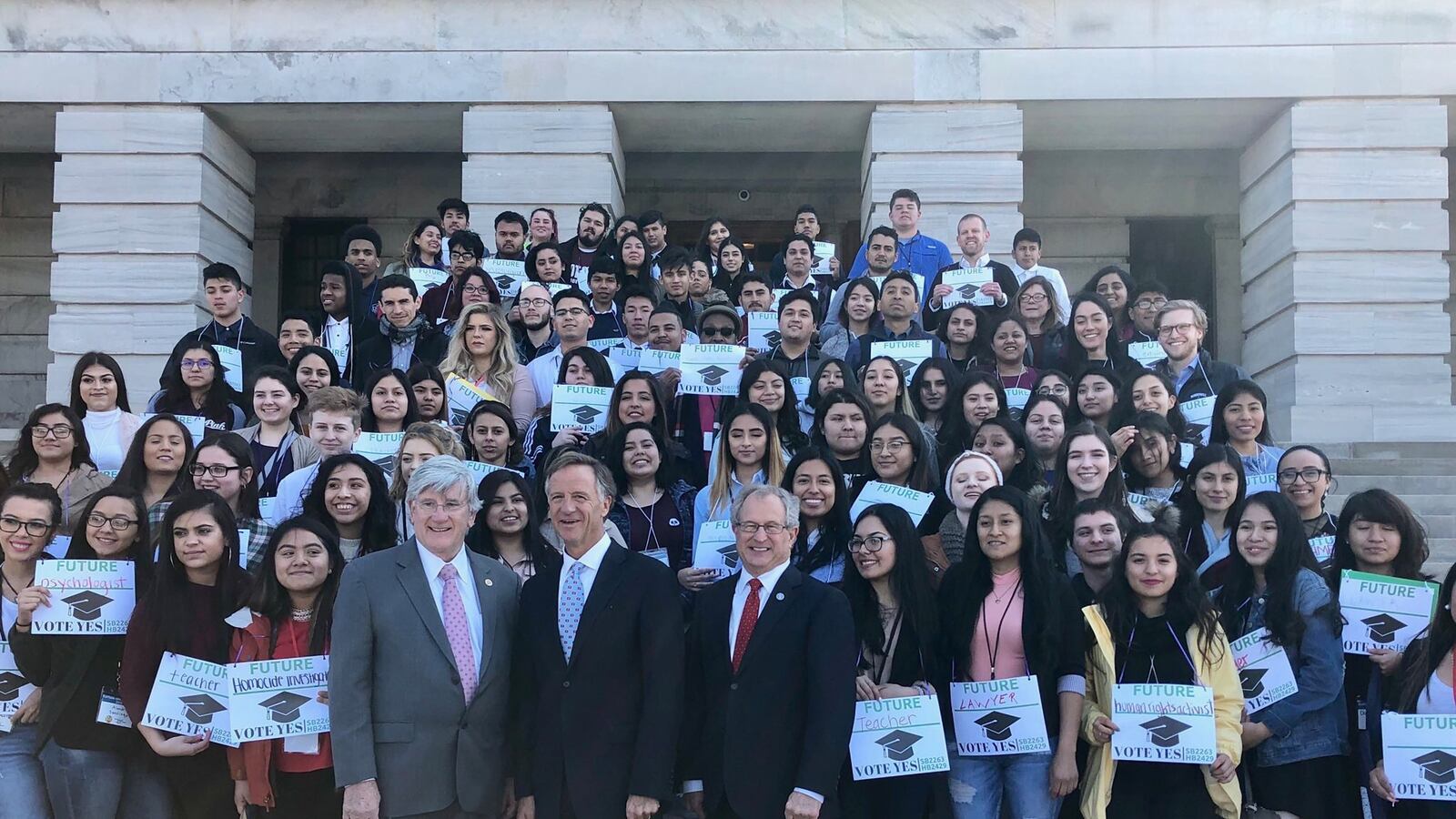Seventeen-year-old Nellely Garcia watched with elation Tuesday as a bill that would make it easier for her to attend college cleared its first hurdle in Tennessee’s legislature.

An immigrant from Mexico who has lived in Memphis since she was a baby, Garcia traveled to Nashville during her spring break to support legislation that would provide in-state tuition to any student who attends a Tennessee high school for at least three years, regardless of their immigration status. The bill is aimed at students like Garcia, who has attended public school in Tennessee since kindergarten after her parents moved their family to Memphis without legal permission.
The measure passed 4-1 in the House Education Administration and Planning Subcommittee, with Rep. Dawn White, a Republican from Murfreesboro, casting the sole nay vote. It’s sponsored by Rep. Mark White, a Germantown Republican, and Sen. Todd Gardenhire, a Republican from Chattanooga, who have championed the proposal since 2015. That year, it passed in the Senate but fell one vote short of clearing the House.
“This bill will give us a fair chance to have a higher education and pursue our dreams,” said Garcia, a senior at Wooddale High School. “We have the ability to contribute. We want the opportunity to give back.”
But Garcia understands that the legislative process is a marathon and not a sprint. The measure must pass a full House committee and a Senate panel before heading to both chambers. Gov. Bill Haslam has said he would sign the bill if it reaches his desk.
“This is the first step. We’ve got several more committees to pass, but certainly this is an amazing start,” said Stephanie Teatro, a leader with the Tennessee Immigrant and Refugee Rights Coalition, speaking to dozens of cheering high school students after Tuesday’s vote.
The bill is supported by most of the state’s public colleges and universities and, based on a 2017 poll by Vanderbilt University, about 72 percent of Tennesseans favor it, too.
Rep. Dawn White voted against the measure, arguing that Tennessee taxpayers should not give a tuition break to students who are in the country illegally.
Garcia has a different perspective. “I’ve lived here all my life. I may not have the papers, but I’m as American as my other classmates,” she told Chalkbeat.
But she likely won’t be able to afford college, she said, without in-state tuition, which cuts the cost of attending a public college or university by a third. Garcia hopes to study psychology or American history at the University of Memphis or Christian Brothers University.
“If I don’t go to college, my choices are really to work or get married. That’s not what I want to do right now,” she said. “I want to get in-state tuition like my other classmates.”

